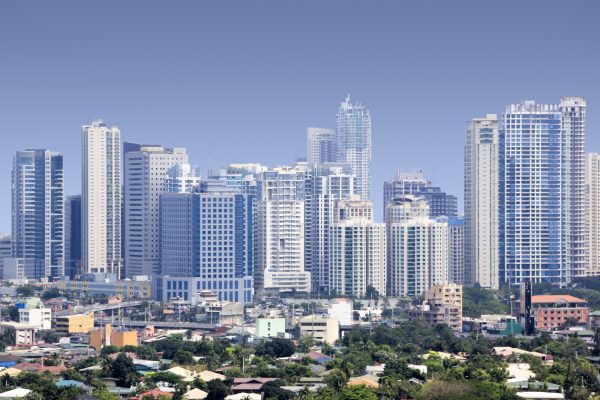
The Philippines intends to shut down 175 online gambling firms and deport about 40,000 Chinese nationals who are working for them, as pressure builds on the government to crack down on the shadowy online gaming sector.
An official from the Ministry of Justice announced the plan on Monday, citing the ecosystem of criminal activities that has grown around the industry over the past six years. “The crackdown was triggered by reports of murder, kidnapping and other crimes committed by Chinese nationals against fellow Chinese nationals,” ministry spokesperson Dominic Clavano said, according to a report by Reuters.
Philippine offshore gambling operators, known colloquially as POGOs, first started appearing in the Philippines in 2016. Staffed mostly by expatriate Chinese nationals, POGO operations mostly targeted customers in China. The industry’s growth coincided with the coming to office of President Rodrigo Duterte, who loosened regulations on the arrival of Chinese nationals, and initiated a foreign policy pivot toward Beijing.
But it also reflected the regional growth of the industry, which good evidence suggests is enmeshed with the Chinese organized crime networks that have long been active across the region. The years after 2016 also saw the rapid growth of Chinese-backed gambling operations in other parts of Southeast Asia, particularly in Cambodia and Laos, and in rebel-controlled regions of eastern Myanmar.
When COVID-19 hit, many of these operations, particularly in Cambodia, pivoted to online scam operations that have been associated with human trafficking on an industrial scale. These operations have lured hundreds – possible thousands – of people from across Asia with offers of good-paying work, only to enclose them in fortified compounds and force them, on pain of beatings and other forms of torture, to conduct phone and text message scams in their own languages.
There is good reason to suspect that the Philippines-based gambling industry has similar associations. A report by Filipino lawmakers published in January found a “clear link” between online gambling operations businesses and a host of nefarious activities including human trafficking.
The reason why the Philippines’ government has tolerated the growth of POGOs is straightforward. Reuters’ report on the upcoming crackdown cited estimates from the real estate consultancy Leechiu Property Consultants, to the effect that POGOs deliver 190 billion pesos ($3.22 billion) to the country’s economy each year. Leechiu estimates that a complete exit of the POGO industry would leave vacant 1.05 million square meters of office space and 8.9 billion pesos ($151 million) in foregone annual rent.
But the crime that has surrounded the sector has led to growing pressure on the administration of President Ferdinand Marcos Jr. to do something about POGOs, and the thousands of Chinese nationals who are believed to have remained in the Philippines, beyond the expiry of their visas. Earlier this month Senate Majority Leader Joel Villanueva tabled a bill that would prohibit and penalize any form of online gambling activities in the country.
“The consequences of gambling and online gambling are too severe to be ignored,” Villanueva wrote in an explanatory note for the bill, which was tabled on September 6. “The cost of gambling is no longer limited to the loss of money, but extends to the loss of values and lives.”
Given the criminal activities that have been associated with the growth of Chinese gambling operations across Southeast Asia, a Philippine ban is probably a matter of time. But it will require additional follow-through to ensure that the ban has the intended effects.
A cautionary tale is offered by Cambodia, where the government stopped issuing new online gambling licenses at the end of 2020. As it turns out, this merely opened the door to the much more noxious “business” of telecom scam operations, whose full horrific human toll continues to surface on a nearly daily basis.